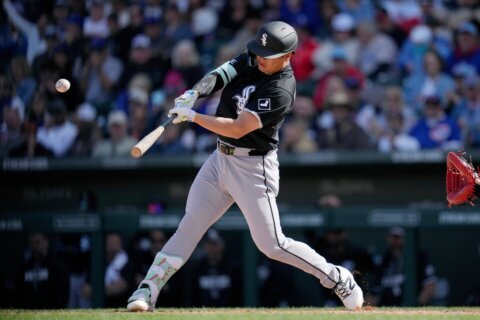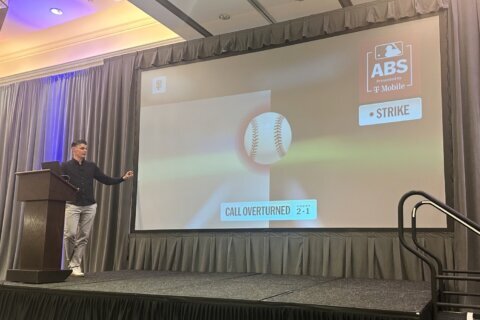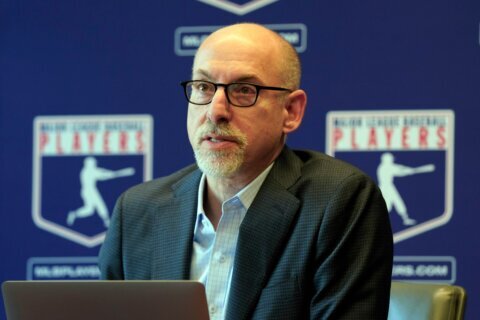As the MLB pennant races heat up after the All-Star break, it’s time to dust off the old awards predictor and see where the Cy Young and MVP races stand. As always, our model is not intended to tell you which player is objectively having the best season, but rather a weighted system that includes statistics used by voters in their decision-making. Last year’s model went 4-for-4, also correctly picking the runner up in three of the four categories.
There has been some talk recently about Max Scherzer as a potential NL MVP candidate this season. Scherzer’s put together an excellent campaign to date, and while there’s certainly both a statistical and sentimental case to be made for the emotional leader of a team poised to make a playoff run, there is also a lot of historical precedent working against that.
Through 19 starts last year, Scherzer was 11-5 with a 2.33 ERA, 177 strikeouts (10 double-digit strikeout games) in 127.2 innings pitched, and a .576 OPS against. Through 19 starts this year, he’s 9-5 with a 2.30 ERA, 181 strikeouts (nine double-digit strikeout games) in 129.1 innings pitched, and a .597 OPS against. In other words, he’s been excellent, the best pitcher in the league. But he’s also been almost exactly the same pitcher he was last year.
The good news, when it comes to the National League Cy Young Award, is that defending champ Jacob deGrom hasn’t been anywhere near as good. That leaves Scherzer at the top of the pitching class. But it doesn’t make much of a historical MVP case for him.
Pitchers and hitters are very hard to compare among traditional counting stats and ratios, so we’re left with looking at the historical nature of their seasons and using Wins Above Replacement to compare apples and oranges.
Last season, while winning the Cy Young with a 1.70 ERA and 10.1 bWAR — a full 2.5 bWAR above any position player — deGrom finished fifth in the NL MVP race. He received the only first-place vote that didn’t go to Christian Yelich (7.6 bWAR), but ended up behind Javy Baez (6.3), Nolan Arenado (5.6) and Freddie Freeman (6.1). This, despite four pitchers outpacing the entire field of position players in bWAR for the first time since 1913.
The numbers held when you switched over to FanGraphs as well. deGrom’s 9.0 fWAR was well better than Yelich’s (7.6), Arenado’s (5.7), Baez’s (5.3) or Freeman’s (5.2). But it didn’t matter. Such is the nature of the vote. And it’s why, even though Scherzer is having arguably another great season in his Hall of Fame career, the statistical case for him winning remains poor at this point.
Scherzer’s 5.5 bWAR and fWAR at the break don’t even outpace what Cody Bellinger has put up, at 6.6 and 5.6, respectively. Yelich is putting together another exemplary season, with 4.9 bWAR and 5.1 fWAR. Clayton Kershaw is the only NL pitcher since Bob Gibson in 1968 to win the MVP, and he did so by posting a 1.77 ERA and outpacing the highest position player (Giancarlo Stanton) by 1.7 bWAR
As good as Scherzer’s 197 ERA+ is, it’s short of deGrom’s 218 from last year. Considering that deGrom couldn’t do better than fifth in a weak year for hitters, despite a sub-2.00 ERA like Kershaw’s and head-and-shoulders better WAR numbers, there’s simply no good argument that Scherzer would do better this year if everyone maintains their current pace.
With all that said, here are the model’s projections and raw scores (normalized to 100 for the leaders) in the four races right now.







